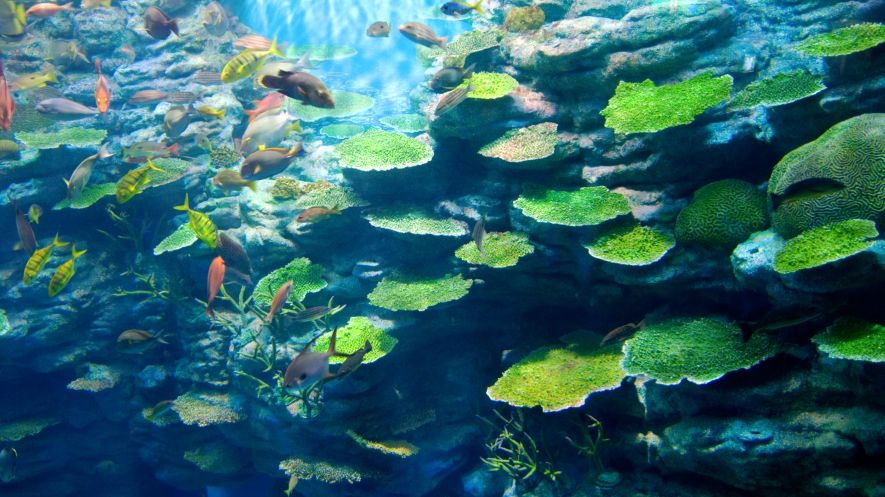The tiny Pacific island nation of Palau created a vast marine sanctuary on 28 October 2015.
The legislation creating the sanctuary designates 80% of the nation’s maritime territory as a fully protected marine reserve in which no extractive activities, such as fishing or mining, can take place. At 500,000 square kilometers or slightly larger than the U.S. state of California, the sanctuary becomes the sixth-largest fully protected marine area in the world.
Palau President Tommy Remengesau said the sanctuary, comprising 80 percent of the nation's maritime territory, would allow the ocean to heal after decades of industrialized fishing which has driven some species to the brink of extinction.
"A small island nation can have a big impact on the ocean," he said ahead of a ceremony Wednesday to officially sign off on the reserve.
"Island communities have been among the hardest hit by the threats facing the ocean. Creating this sanctuary is a bold move that the people of Palau recognize as essential to our survival."
The archipelago, part of the larger island group of Micronesia in the west Pacific, has a population of just 18,000.
The sanctuary will be phased in over five years, eventually leaving only a relatively small area of Palau's waters open to fishing by locals but not the foreign trawlers which dominate the Pacific industry.
The no-fishing plan prioritizes tourism—which contributes about US$160 million or 50% of gross domestic product annually—over the tuna industry, which contributes around US$5.5 million a year.
Palau created the world's first shark sanctuary in 2009 and about one-third of countries have now followed suit, changing attitudes to the predator and helping curb demand for shark fin soup.
Conservation efforts are underway in the Pacific to create a network of marine parks across the region to ensure one of the world's last pristine ocean ecosystems is managed sustainably.
In 2012 the Cook Islands unveiled a 1,065 million square kilometer marine park while Kiribati and Tokelau have also declared huge protected zones. New Zealand announced plans last month to create a marine sanctuary the size of France by 2016.






